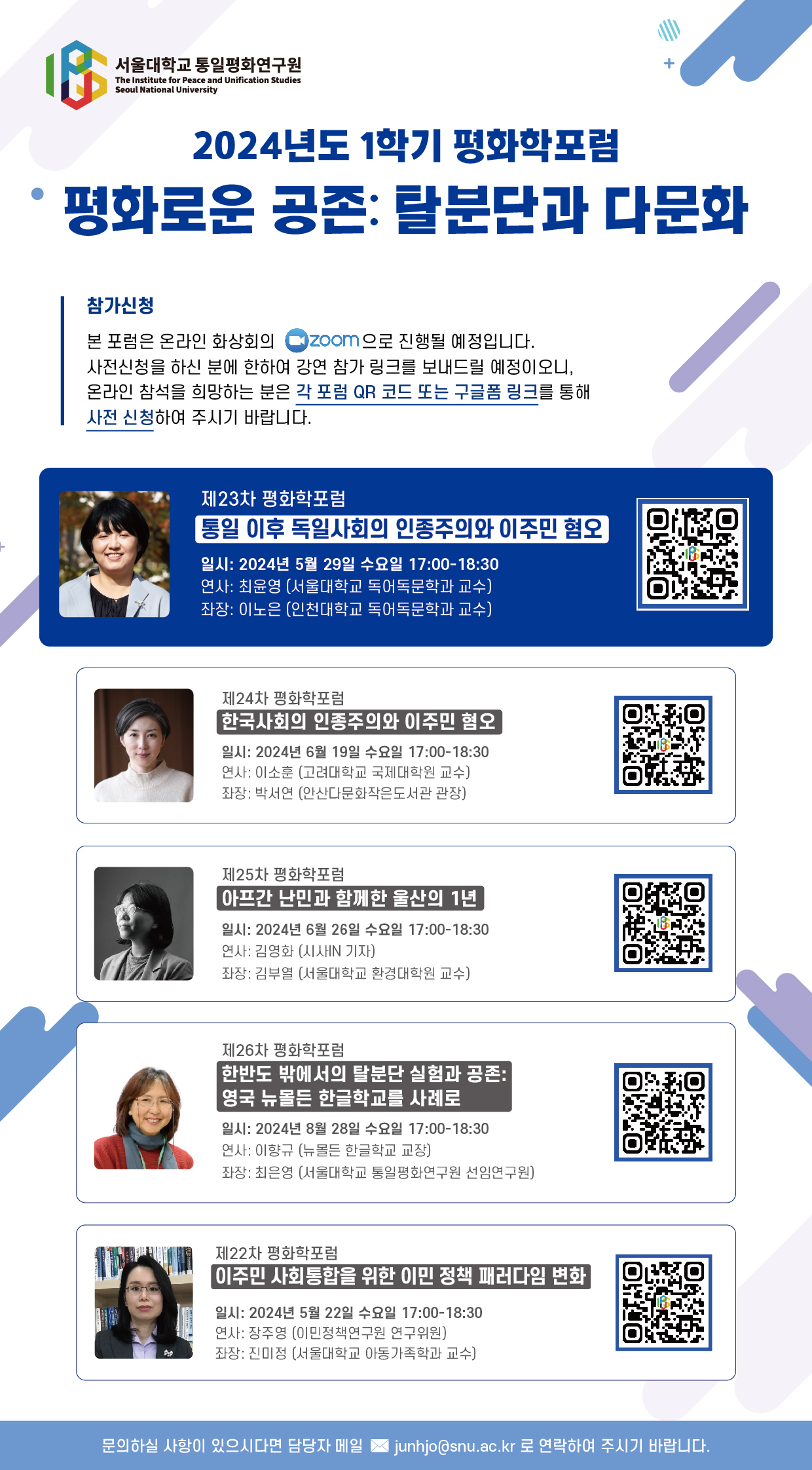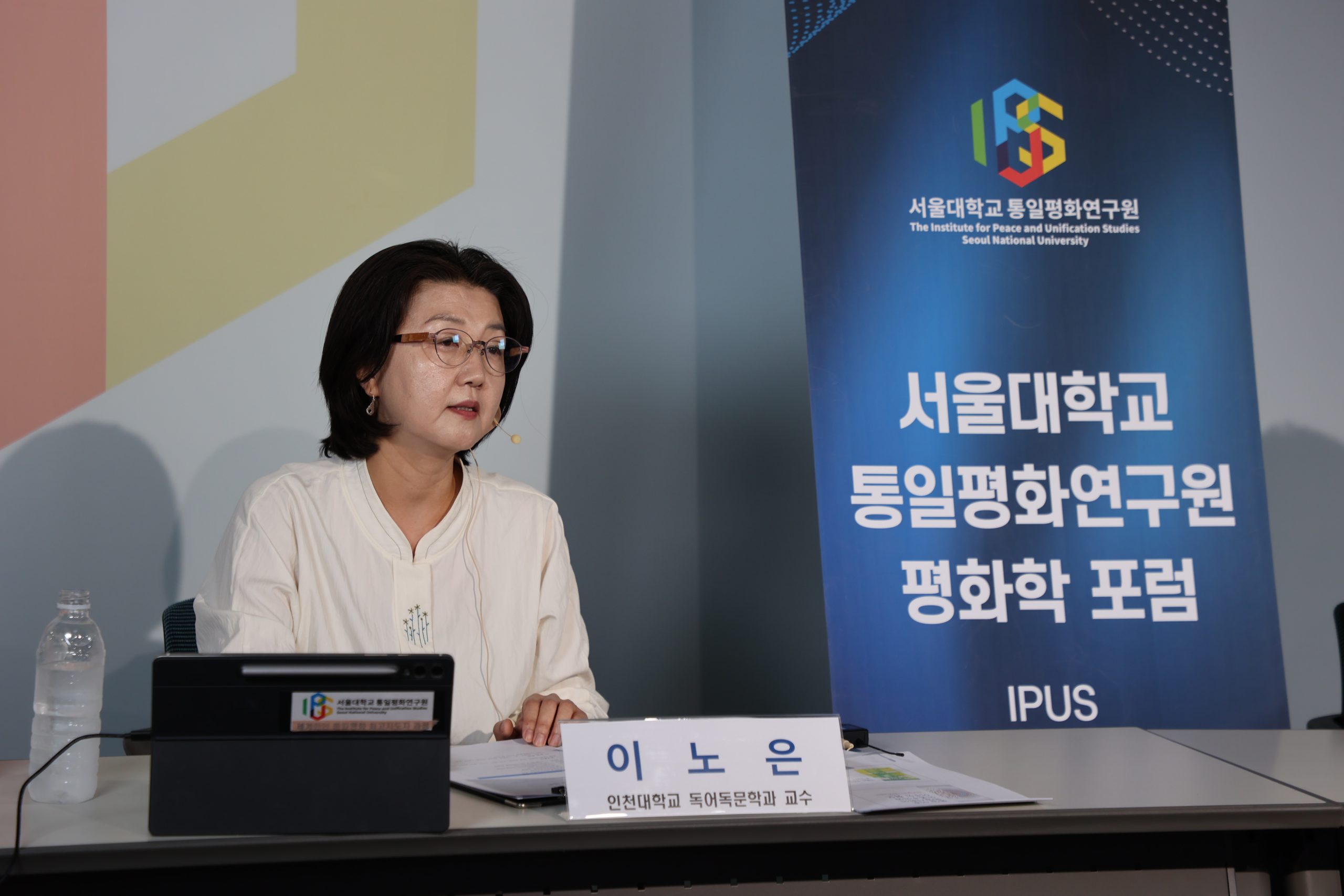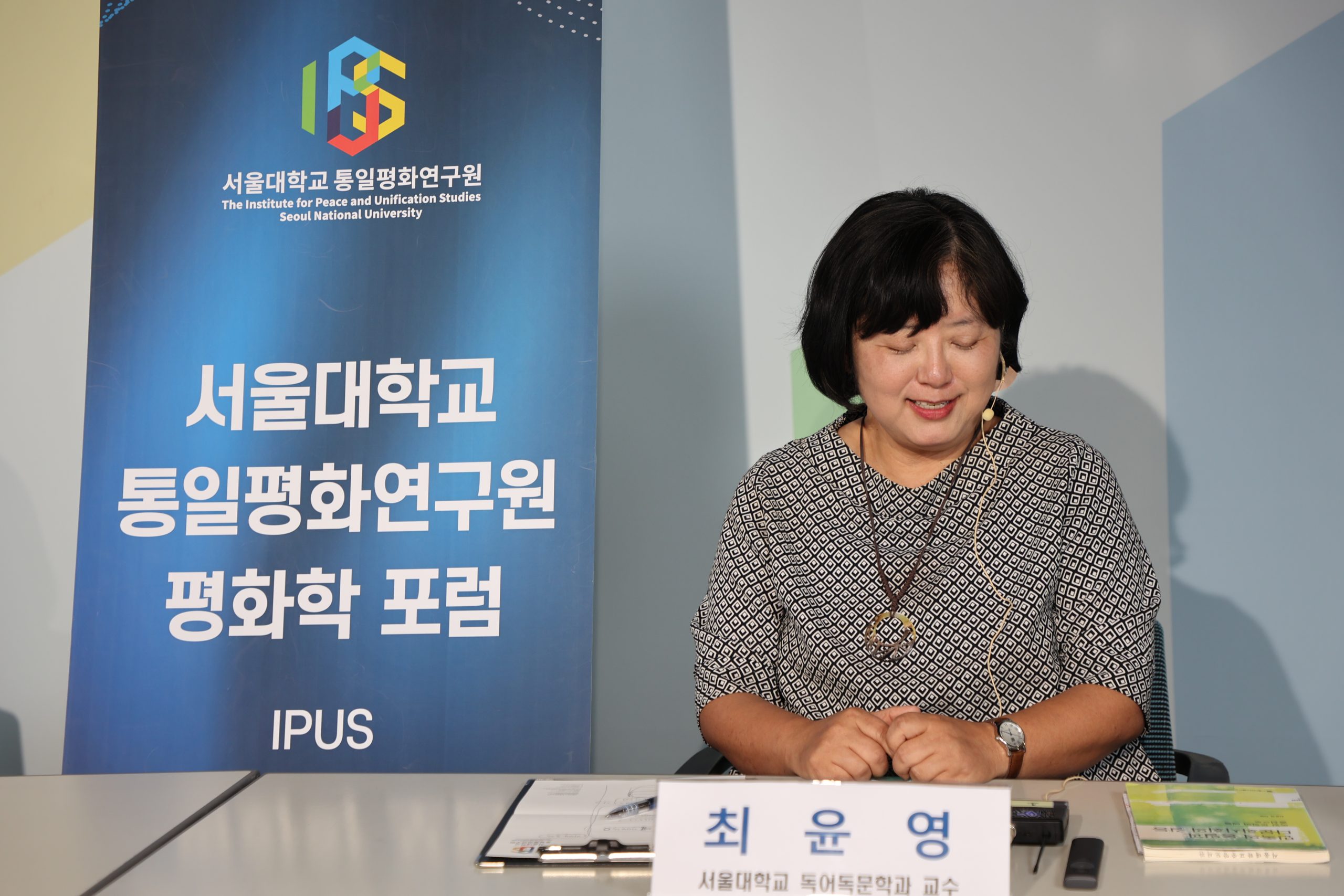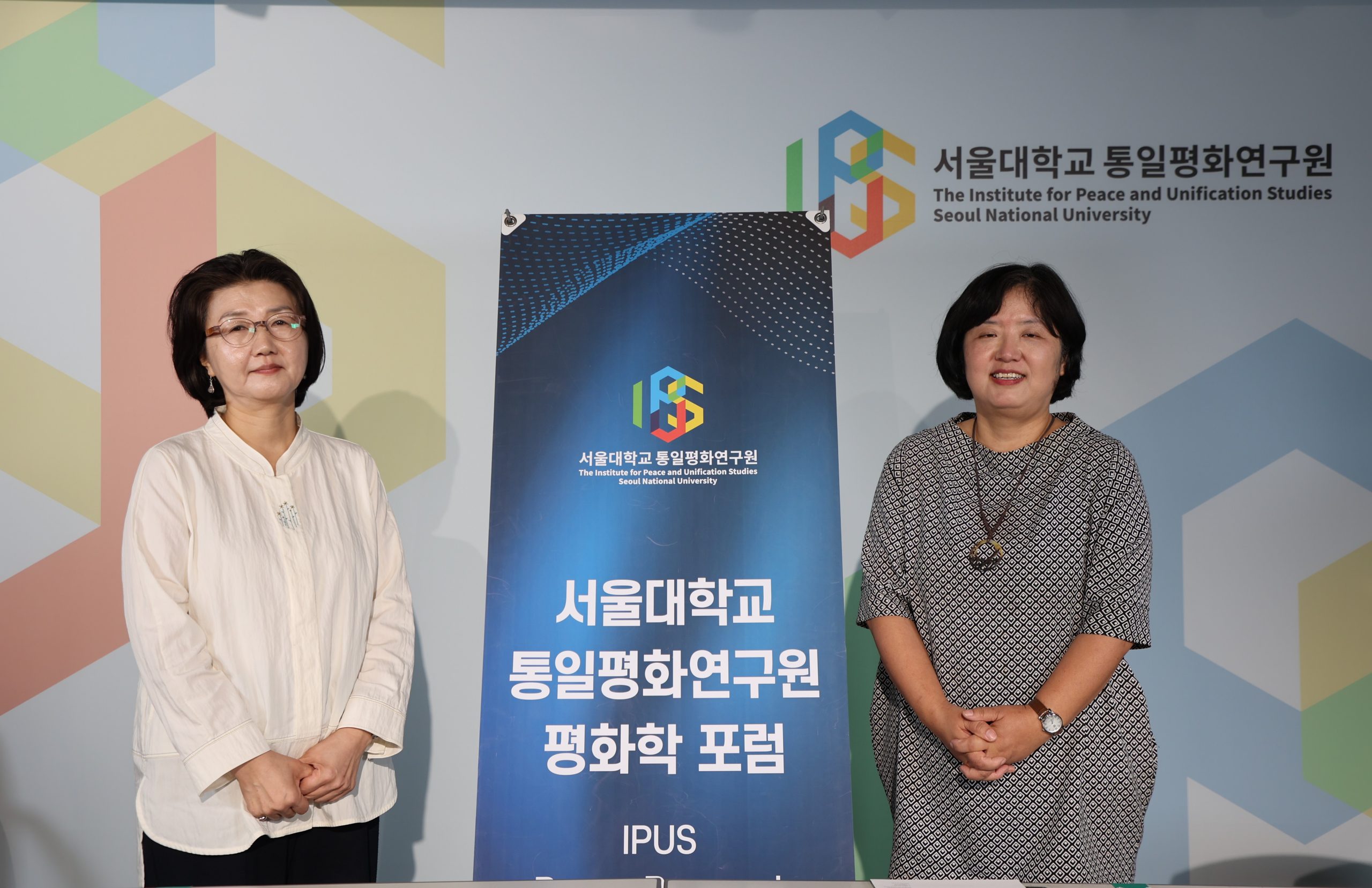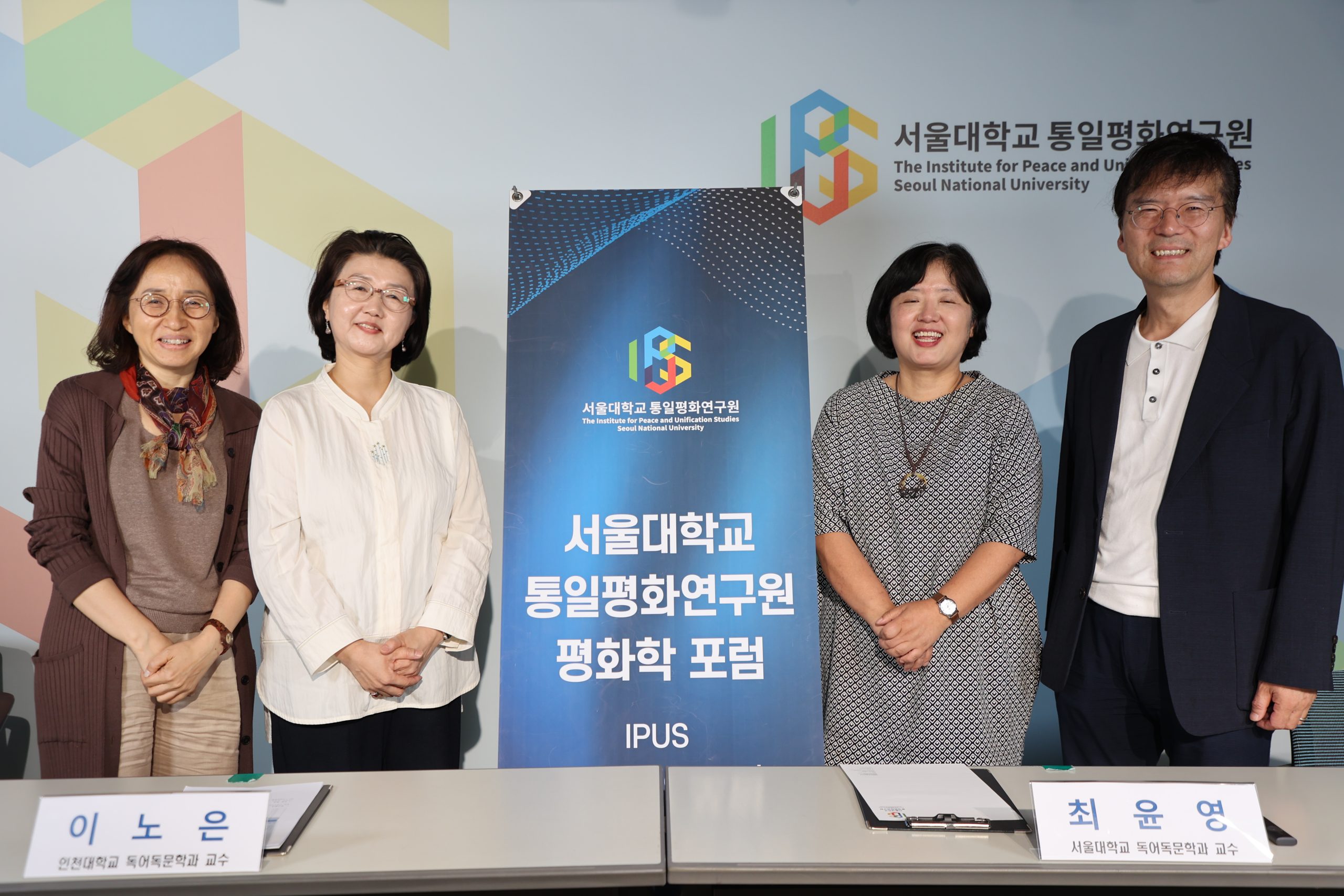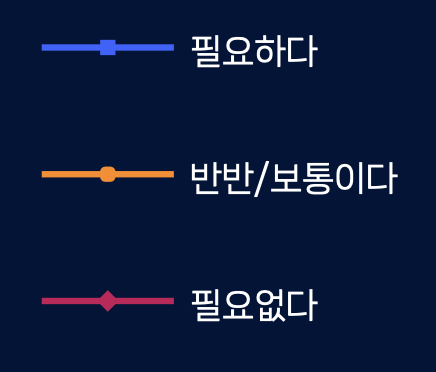[23rd Peace Studies Forum] Racism and Xenophobia in Post-Unification German Society
- Date: Wednesday, May 29, 2024, 17:00-18:30
- Venue: Online Video Conference (ZOOM)
- Presenter: Choi, Yun-Young (Professor, Dept. of German Language and Literature at Seoul National University)
- Chair: Lee, No-Eun (Professor, Dept. of German Language and Literature at Incheon National University)
- Theme: Racism and Xenophobia in Post-Unification German Society
The Institute for Peace and Unification Studies at Seoul National University (IPUS at SNU) held the 23rd Peace Studies Forum on Wednesday, May 29, 2024, under the overarching theme of ‘Peaceful Coexistence: Post-Division and Multiculturalism.’ The forum featured a discussion led by Professor Choi Yun-Young from the Department of German Language and Literature at Seoul National University under the main topic ‘Racism and Xenophobia in Post-Unification German Society.’ Professor Lee No-Eun from the Department of German Language and Literature at Incheon National University chaired the forum, opening the event with welcoming remarks.
In this forum, Prof. Choi examined the patterns and causes of terrorism against migrants since German reunifcation, exploring how real individuals, especially migrants, have experienced this period through the lens of literature. Choi stated that “as of 2022, the proportion of people with immigration backgrounds in Germany is 28.7% of the total population,” explaining that half hold German citizenship and the other half hold foreign citizenship. “This is because West Germany used Gastarbeiter to fill the labor needs during the economic revival,” Choi noted, further explaining that “according to the latest statistics, Turkey has the highest proportion, followed by Ukraine.” “Interestingly, statistics show that regions with the highest levels of hostility toward foreigners are mainly in the former East Germany, despite having a low percentage of foreigners. The phenomenon of ‘xenophobia without foreigners’ is noteworthy.” Choi explained.
Professor Choi continued to delve into the xenophobic terrorist attacks that occurred shortly after unification, such as the Hoyerswerda riots (1991), the Rostock-Lichtenhagen riots (1992), and the Mölln arson attack (1992). She noted that “these incidents all occurred in West Germany and involved not only the far right but also the middle class, making them even more shocking.” She then introduced Z. Şenocak’s quote, “The Berlin Wall came down. That wall fell on the heads of the Turks,” and explained that “as Şenocak pointed out, German unification revived the long-held Pandora’s box of ‘German national’ identity, labeling immigrants as non-Germans and leading to much discrimination and hatred, including terrorist attacks against them.” In analyzing the causes of xenophobic terrorism, Professor Choi identified two key factors: “(1) the tendency to blame foreigners for internal social problems such as unemployment, social security, and crime rates after unification, and (2) the formation of anti-foreigner sentiment due to the rise of a new nationalism.” She also pointed out that policies were implemented one step too late, despite the rapid progress of multicultural society.
Specifically, Professor Choi discussed Germany’s foreign policy. She explained that “West Germany’s policy shifted its focus from the Rotationsprinzip, which involved replacing migrant workers every three years, to the Integrationsprinzip, which emphasized integrating immigrants into society.” “East Germany’s immigration policy, in contrast, operated under a strict socialist planned economy,” she noted, “and it actively recruited workers from Poland, Hungary, Mozambique, Cuba, Vietnam, and North Korea (and other countries) through the Council for Mutual Economic Assistance (CMEA) to address labor shortages.” She explained “These workers were expected to return to their home countries after completing their assignments.” Professor Choi goes on to say that “after reunification, Germany enacted new asylum laws and recognized itself as an immigration country in the 2000s, granting German citizenship to foreign-born children born in Germany.” However, she criticized the lack of a consistent and long-term foreign policy in unified Germany, pointing out that policies fluctuated significantly depending on the ruling government.
Professor Choi then introduced several literary works focusing on immigrants in unified Germany to examine the lives of individual immigrants who lived through that period. First, she introduced the work of Hung Gurst, a Vietnamese writer who examined a cross-section of society in unified Germany from the perspective of an immigrant. She also highlighted his experience of discrimination due to cultural differences. Professor Choi then turned to the works of Turkish writers E. S. Özdamar and Z. Şenocak, particularly Şenocak’s works that explore themes of the post-war period and overcoming the past. These works reveal the struggles of individual Jews who returned to Germany from Turkey as they tried to adapt to German society in their own ways. She also introduced the work of M. Biller, a Jewish writer who criticized former German Chancellor Willy Brandt’s emphasis on ethnic identity in his later years. Biller’s writings, according to Professor Choi, argue that “the emphasis on nationalism has led to the retreat of multicultural values and created many conflicts.” Professor Choi also discussed Wladimir Kaminer’s work, which examines the lives of Jews who migrated from Russia to Germany. Lastly, Professor Choi concluded by discussing a work that explores the the life of a second-generation immigrant. The Individual grew up in Berlin and identidied as German, only to be pushed aside as an outsider after German reunification. The work was vividly delivered by Professor Choi, portraying the confusion, pain, and discrimination experienced by second-generation immigrants in the wake of the German reunification.

